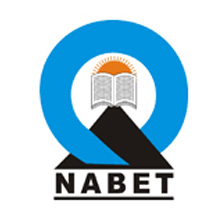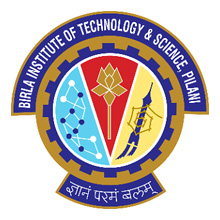Who can implement ISO 27001 standard
Any organization, regardless of its size or industry, can implement an ISMS (Information
Security Management System) to protect its sensitive information and ensure the
confidentiality, integrity, and availability of data. The decision to implement an ISMS is
often driven by the need to manage and mitigate information security risks. Here is list of
some organizations who commonly implement ISMS:
- Large multinational corporations and medium-sized businesses often implement
ISMS to safeguard sensitive business information, trade secrets, and customer data.
- Government Agencies at various levels implement ISMS to secure sensitive
information, critical infrastructure, and citizen data.
- Financial Institutions like Banks and other financial organizations implement ISMS to
protect financial transactions, customer information, and comply with regulatory
requirements.
- Healthcare Providers like hospitals, clinics, and healthcare organizations implement
ISMS to secure patient records, comply with healthcare regulations (such as HIPAA),
and protect sensitive medical information.
- Technology and IT Companies implement ISMS to protect intellectual property, client
data, and ensure the security of software and systems.
- Educational Institutions like schools, colleges, and universities implement ISMS to
protect student records, research data, and intellectual property.
- Manufacturing and Industrial Companies implement ISMS to protect proprietary
processes, designs, and sensitive production data.
- Retail and E-commerce Businesses implement ISMS to secure customer data,
financial transactions, and sensitive business information.
- Nonprofit Organizations implement ISMS to protect donor information, confidential
data, and ensure the security of their operations.
- Energy and Utility Companies implement ISMS to protect critical infrastructure,
control systems, and sensitive operational data.
- Transportation and Logistics sector implements ISMS to secure data related to
shipping, logistics, and supply chain management.
Advantages of completing the ISO 27001 Lead Implementer course
from COAE
 COAE has the relevant expertise in this sector
COAE has the relevant expertise in this sector Globally recognized certificates are issued
Globally recognized certificates are issued Course content has been designed & developed by international experts and industry representatives
Course content has been designed & developed by international experts and industry representatives Certified delegates will demonstrate that they have the best capabilities and
competencies to audit client organizations as per global best practices
Certified delegates will demonstrate that they have the best capabilities and
competencies to audit client organizations as per global best practices Most relevant examples from all sector and live case studies are used for training
Most relevant examples from all sector and live case studies are used for training 30 hours of value packed tutor-led sessions
30 hours of value packed tutor-led sessions Focus on knowledge, understanding and skill development of participants
Focus on knowledge, understanding and skill development of participants Effective communication with international experts during the sessions
Effective communication with international experts during the sessions Opportunities for peer interactions and real-time feedback from trainers
Opportunities for peer interactions and real-time feedback from trainers Highly interactive live training sessions
Highly interactive live training sessions COAE training certifications lead to better career opportunities
COAE training certifications lead to better career opportunities
Assessment Criteria for successful completion
- Candidate should score 70% marks in the assessment.
- Assessment includes the continuous and comprehensive evaluation carried out by the
tutor and the final online examination which is held on the last day of the course.
- Online exam duration- 2 hours
- No negative marking
- Access to the ISO 27001 standard is allowed during the exam.
Delegates must pass the assessment to achieve the ISO 27001 Lead Implementer Course
Certificate. Delegates who fail to qualify, are awarded only the certificate of participation.
However, they can reappear for the assessment within 12 months at no additional fee.
COAE Certified ISO 27001 Lead Implementer Course exam fully meets the requirements of
the Exemplar Global, USA Registered Training Provider Programme (RTP).
Pre-Requisites
Basic knowledge of:
- The 13 principles of an ISMS
- Terms and definitions
- Requirements of the ‘Information Security Management System’







 Exemplar Exemplar Global Inc. provides personnel certification, credential management for individuals
seeking professional recognition and independent certification for training providers to
enhance their course quality and outcomes. Exemplar Global works on a global scale having
principal offices in Sydney, Australia, and Milwaukee, Wisconsin, in the United States.
Exemplar Exemplar Global Inc. provides personnel certification, credential management for individuals
seeking professional recognition and independent certification for training providers to
enhance their course quality and outcomes. Exemplar Global works on a global scale having
principal offices in Sydney, Australia, and Milwaukee, Wisconsin, in the United States.













